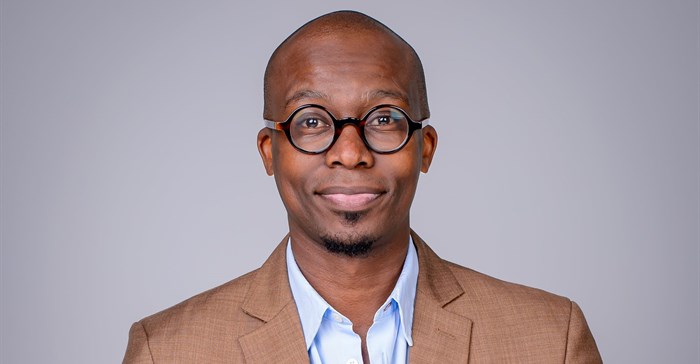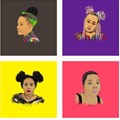#AfricaMonth: Prioritising diversity and inclusion on screen

As such, it is up to brands and businesses to look at how they can do it differently. Monde Twala, senior vice president at Paramount, said, “Representation matters because it has an impact on the real world, on real people, their everyday lives and lived experiences. Different groups experience things in different ways. As a result, to get your message across on TV shows and movies, you should offer a broad representation of a variety of various groups and identities.”
Twala spoke to us about Paramount’s study, Reflecting Me: Global Representation on Screen, and why this is an important subject to broach in business.
Tell us a bit more about yourself and the work that you do
I am the senior vice president and general manager for Paramount Africa. My responsibility is to drive the development and growth of content, music, and youth programming, through our entertainment brands MTV, MTV Base and Bet Africa as well as kids and family brands Nickelodeon and Comedy Central, across the African continent.
In my Bet International role, as peer lead, I am at the forefront of driving the black culture narrative and diverse, authentic African stories across the UK, France, Brazil and Africa.
What does Africa Month mean to you?
Africa month is about supporting continental collaboration and celebrating the colourful African renaissance through music, arts and culture. It is an opportunity to reflect on Africa’s rich and diverse culture and heritage. This is something I am very passionate about as an individual, but also a key strategic objective of Paramount Africa.
The two main themes of this year's Africa Day celebration are A Collaborative Africa and United Colours of Africa. A Collaborative Africa is one in which all Africans are prepared to work together to improve each other's livelihoods, enterprises, and initiatives for the betterment of our future. The United Colours of Africa is a celebration of our great diversity and rich heritage. On this Africa Day let’s come together to make inclusion our focus, especially on the LGBTQI+ community and Women's Rights throughout the celebrations.
What challenges does Africa face when it comes to issues of inclusion in the film industry?
Africa faces several challenges when it comes to issues of inclusion in the film/TV/content production industry.
For instance, it still lacks strong female-driven narratives in content and programmes. It is not as easy to find content with strong female leads, talent, creatives or directors who make decisions regarding the narrative direction of the tale being told. This has an unfortunate effect on authentic African storytelling processes as authenticity and relatability can be compromised.
In addition, people are not represented well. Accurate representation forms part of a social impact and social responsibility aspect of a business's objectives, and Paramount understands this and deliberately invests in prompting a change in every way possible. By initiating studies like Reflecting Me: Global Representation on Screen, we are able to gather audience insights and invest in stories that relay the black African stories as authentically as possible.
Could you tell us a bit more about the findings of Reflecting Me: Global Representation on Screen?
In this study specifically, some respondents say they don’t see enough people that behave like them, are from the same economic level, speak with the same accents or dialect, have a family like theirs or live in a home like theirs. This is an urgent call for our industry in terms of attention to authenticity when telling stories.
Moreover, an overwhelming 93% of South Africans agree that companies making TV shows and movies should commit to increasing diversity and representation on screen, while 90% agree they should commit to improving diversity and representation. We need storylines that portray real life experiences and consulting the people who reflect those stories is necessary.
What do you think should change to make sure diversity on screen becomes the norm?
The solution is multifaceted, but from a content, programming and production perspective, Paramount believes content diversification answers a large part of the issue. Because different groups experience things in different ways, diversification becomes the answer to covering the spectrum. Whether you are celebrating the success of a black female success story through MTV’s Boity: Own Your Throne or Busiswa: Her Majesty, you should also tell the story of the African child in a South Africa link in Isono. This finds the balance between reflecting all levels of reality while celebrating black excellence.
In essence, to get across to a diverse audience, TV shows and movies should offer a broad representation of a variety of groups and identities on screen through content offering diversification.
What would true inclusion and authentic storytelling look like from the African perspective, in your opinion?
True inclusion and authentic storytelling to me, consist of the acceptance and representation of everyone, regardless of race, age, gender, religious and cultural beliefs, or sexual orientation. Storytelling comes with giving people platforms to share their stories in a way that reflects their realities.
Why is it important to ensure that true diversity exists on screen?
Answering from the perspective of a brand that advocates for social impact, true representation answers a global issue related to diversity and inclusion across many industries.
Accurate representation forms part of a social impact and social responsibility aspect of a business’ objectives, and this is more applicable to Paramount Africa, a diverse, global brand that aims to make an impactful contribution in its space. The brand strives for impact, global change, and true on-screen diversity and provides the answer to these challenges via various avenues, including its recent research and insights study Reflecting Me: Global Representation on Screen.
It is critical to ensure that actual diversity appears on-screen since audience representation is required for authentically communicating with varied audiences and communities.















































